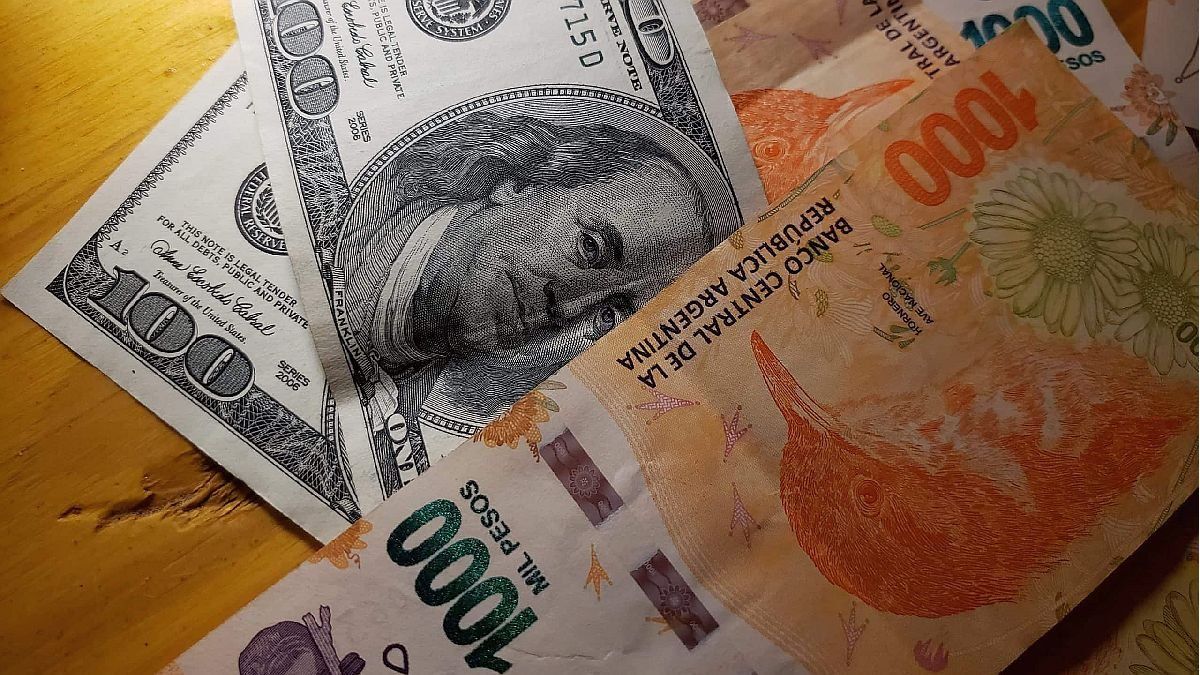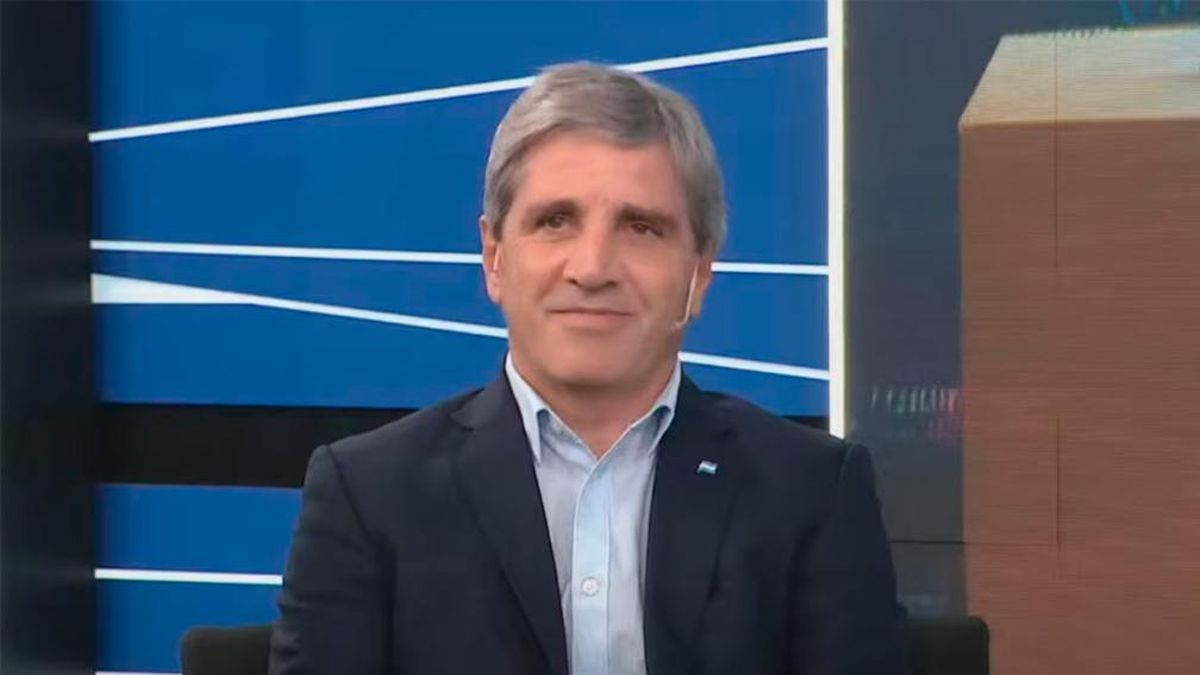Salvador Di Stefano dollar devaluation inflation.png
In a note published in Ámbito, Di Stéfano considered that the exchange rate, rates and interest rates are behind, a rapid adjustment of variables is necessary to harmonize a scenario of economic growth. The agreement with the IMF is an anecdote next to the restyling you need the economic plan.
The 2022 scenario looks very similar to 2018, with which we could anticipate that it will be influenced by the drought, lack of external credit and high fiscal deficit. The government should work to avoid this scenario, otherwise it will have difficulty winning the next election.
Argentina has an unsolved problem, the chronic fiscal deficit, as long as it does not manage to finance it in a genuine way, either with higher fiscal income or with internal / external credit, the financing will be done via monetary issuance and this will invariably lead us to an inflation scenario. more devaluation.
The official dollar It is still repressed, in the last 12 months it rose 24.1%, while inflation is at 52.1% per year, they are stepping on the exchange rate so that the rise does not translate into higher inflation.
The government has political restrictions, it knows that an increase in public services can awaken mobilizations in the population. In the last 12 months, subsidies went from representing 10.7% to 15.0% in current spending, while social benefits lost their share from 65.5% to 59.1%. Said in other numbers, social benefits rose 28.9% and economic subsidies 100.8% in the last 12 months.
In this stage, We have repressed inflation, the official dollar is not worth what it should be worth, neither are the rates, if everything would align to a real value, we would be talking about another inflation, a fall in the level of activity, a drop in purchasing power and a deepening of the crisis in the immediate. If they continue to stretch the decision to increase rates and the exchange rate, the economy languishes, we will have the same results to adjust in a single act, but it will take more time to live it.
The economic activity begins to show a strong deceleration, the Monthly Estimator of Economic Activity is slowing down its growth, something similar happens with the installed capacity and the industrial production index.
Sales have decreased, it is no longer dispatched as it was a few months ago, selling implies giving terms and accommodating prices with bonuses, companies are losing profitability, liquidity problems begin, there is a lot of money on the street and little in companies. The banks are watching this process, they are no longer so decisive to provide financing at negative rates against inflation, they are beginning to take liquidity short, months of less financing and higher rates are coming.
The government has to agree with the IMF, that is not on the table for discussion, here and now the problem is another, what measures have to be taken to agree with the body and what impact they will have on economic life.
- It is necessary to adjust the official exchange rate to achieve higher exports, increase reserves with dollars, allocate dollars to imports and increase tax collection through the anticipated collection of taxes on merchandise that enters the country.
- It is necessary to raise the tariffs, this will allow the State to incur in less expenses in subsidies, it would reduce the fiscal deficit, it would issue less money and it would achieve lower inflation.
- The interest rate must be positive against inflation. The monetary policy rate is at 38% per year, this implies that the annual effective rate is 45.4%. The Central Bank would be studying raising the monetary policy rate to 41.0% per year, this implies that the annual effective rate would be 49.7% per year, although it would not be positive against inflation, it would be at a level closer to the current one .
- When the Central Bank raises the monetary policy rate, it would create a disincentive for companies to take out financing and a greater incentive to save. In any case, this measure will be recessive, however, given the scarce amount of credit that our economy has, it does not seem that the impact will be significant.
- A rise in the interest rate would have an impact on the interest paid by the Central Bank on leliqs and repos that are placed to remove excess liquidity from the market. This is an unsolvable problem, the stock of debt amounts to $ 4.6 million million and, if the rate rises, more will be paid in interest, with which it will be necessary to devalue to settle the pesos paid in said concept.
- Reserves total approximately US $ 39,000 million, are paid from leliq interest and $ 1.3 million million, to net this figure we would need an exchange rate increase of $ 33.33 to balance the balance of the Central Bank This would imply a devaluation of approximately 30% as a floor.
conclusion
- Carrying out this set of measures will have a high cost on all consumers. Devaluing, increasing rates and increasing the interest rate generates a very harmful effect on the economy, however, it would honest the economic variables.
- The government, instead of taking the path of sincerity in market prices, intends to repress the private sector by increasing taxes, in order to hide the problems derived from a low exchange rate, fiscal deficit, high inflation and high exchange gap.
- Placing more taxes never solved Argentina’s structural problems, we would believe that they increased, and the cost of higher taxes falls on the most neglected sectors of society.
- Those who do not want to make the adjustment today are responsible for the adjustment tomorrow. As there is no immediate change of government, everything would indicate that this government will sooner or later proceed to adjust the economy to real market values. It does not mean adjusting to shrink, it means putting real values to the dollar, rates and interest rates to forge a future of growth.
- Hiding problems or denying them does nothing more than enhance them in the future. The year 2022 should allow us to return to the real market values of the basic inputs of the economy, with absolute freedom to export what we produce. It would also be necessary to adjust wages to the new equilibrium point that our economy achieves. We have a severe income problem, which the government fails to speak of.
- We come to the year 2022 off-axis, we need alignment and balancing, the longer we delay, the faster the economy is going to disband. If the government would be more astute, it would have to adjust today, to be able to reap the fruits in 2023. If it continues to delay the adjustment, it will happen like Mauricio Macri, it will have to make the adjustment in the electoral year, and we all know how that ended. history.
Source From: Ambito
David William is a talented author who has made a name for himself in the world of writing. He is a professional author who writes on a wide range of topics, from general interest to opinion news. David is currently working as a writer at 24 hours worlds where he brings his unique perspective and in-depth research to his articles, making them both informative and engaging.




